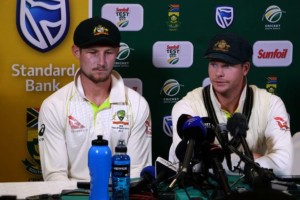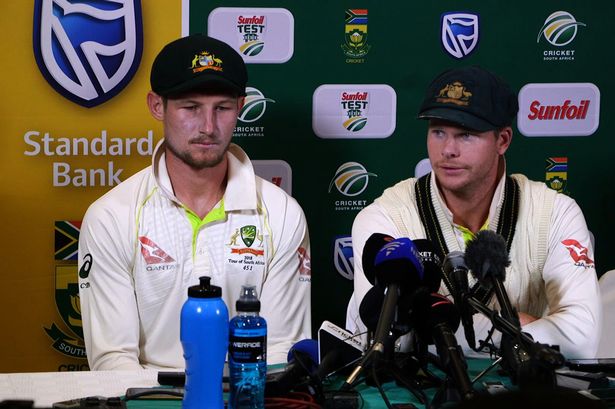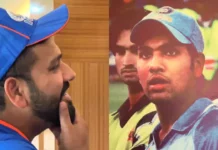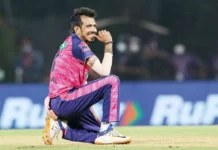 NEW DELHI: The International Cricket Council (ICC) is set to revisit its players’ ‘Code of Conduct’ and amendments are on the cards for specific serious offences like ball tampering and sledging, the apex body’s Chief Executive David Richardson said today.
NEW DELHI: The International Cricket Council (ICC) is set to revisit its players’ ‘Code of Conduct’ and amendments are on the cards for specific serious offences like ball tampering and sledging, the apex body’s Chief Executive David Richardson said today.
The world cricket has been rocked with Australian captain Steve Smith, his deputy David Warner being banned for a year for involvement in ball tampering during the third Test against South African in Cape Town.
Rookie opener Cameron Bancroft has got a nine-month suspension.
The disgraced trio has tendered a public apology with Smith looking completely distraught with his reputation tarnished forever.
“Yes, I am pretty sure that in a short span of time, we can make amendments to our code of conduct, easier to enforce and easier to up the level of sanctions on specific offences. We can do that quite quickly,” Richardson told PTI during an interaction today.
The former South African wicketkeeper however feels that while amendment can be done in quick time, the “culture of respect” needs to be implemented and that will take time.
“I think it will take a longer time to implement a culture of respect. That doesn’t happen overnight. So that might take a little bit longer, certainly, I don’t see there will be total revamp of code but being clear in knowing ‘what do we mean when we say ball tampering and what do we mean when we say you can’t use abusive language’,” he said.
Richardson, who represented South Africa, then went on to cite an example.
“We can, say ‘look, if you don’t have something nice to say, don’t say anything at all’. It’s a real opportunity for us to take a hard look at the game and the definition that it’s just not cricket. We have the obligation that it still becomes a relevant phrase in the English language going forward,” the CEO put it bluntly.
Richardson agreed that Cricket Australia’s approach towards the whole issue has been some sort of a trigger for the ICC to revisit its current players’ code.
“I do know that Cricket Australia have reviewed the incident in a far broader way than that match officials would have reviewed the specific incident of ball tampering in a specific match.
“At the moment, ball tampering is Level-2 offence under the ICC code, and as such under the current code, that equated to pretty much what Smith got at the top end of the range and what Brancroft got at the lower end of the range. Cricket Australia, I know, have reviewed it in a far broader way. It’s a much bigger issue for them,” Richardson said.
Richardson admitted that the Cape Town scandal has been an eye-opener for him as to how the world perceives ball tampering.
“I think that it has been an eye opener for me that hang on ball tampering around the world is considered cheating.
“And if we are going to take the attitude that hang on everyone does it, if we allow a little bit of lip balm on occasion, raise the quarter seam on another, then okay where do we draw the line? Is that okay and using sandpaper is not? We probably need to look at it again. Let’s be absolutely clear what we mean when we say ball tampering is not allowed. And what we mean by ball tampering,” he said.
Richardson said that ICC is looking at empowering some former cricketers of impeccable integrity – such as ex-India captain Anil Kumble, West Indies’ Richie Richardson (he is a match referee), South Africa’s Shaun Pollock – to be a part of a high-powered group including members of MCC to set a roadmap for how the game should be played in the right spirit.
Like Australia’s chief coach Darren Lehmann, Richardson cited the example of New Zealand cricket team, which has epitomized as to how one can be tough competitors within the boundaries of cricketing laws.
“I would like to single out the New Zealand team, who I thought in recent years have played the game in exemplary fashion with correct attitude. They have played the game and not the ‘Man’.
“I won’t be surprised if we can try and learn something from their set-up. West Indies historically is another example of how to play the game. They have played the game hard and fair but never resorted to verbal abuse.”
Richardson, however, denied that the ICC at times have treated some of the bigger teams like India, Australia and England with kid-gloves when they have engaged in on-field skirmishes during bilateral series, compared to some of the other nations.
“I don’t think it is an intentional approach. If you look at total list of ‘Code of Conduct’ offences – players from these particular teams have committed same number of offences as some of the other teams. It’s in 20s.
“So I think they have all had a similar number of offences. I think general consistency is an issue we want to work on.” PTI







